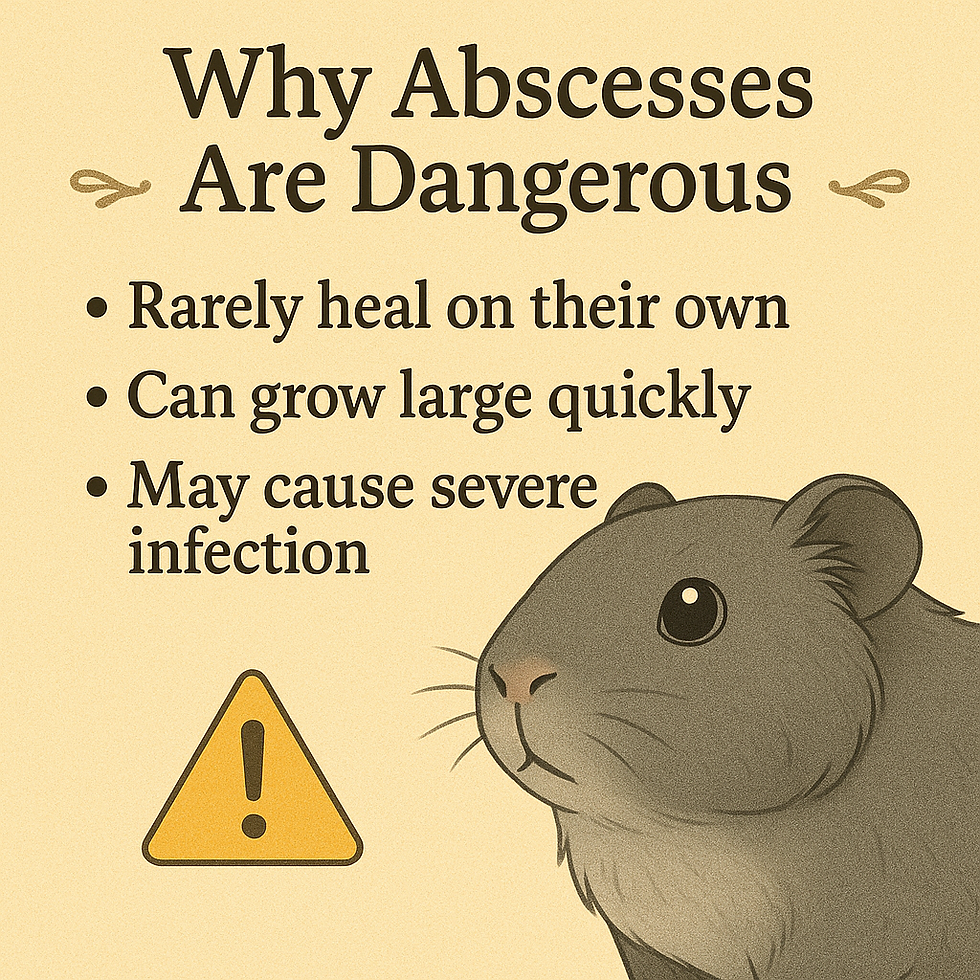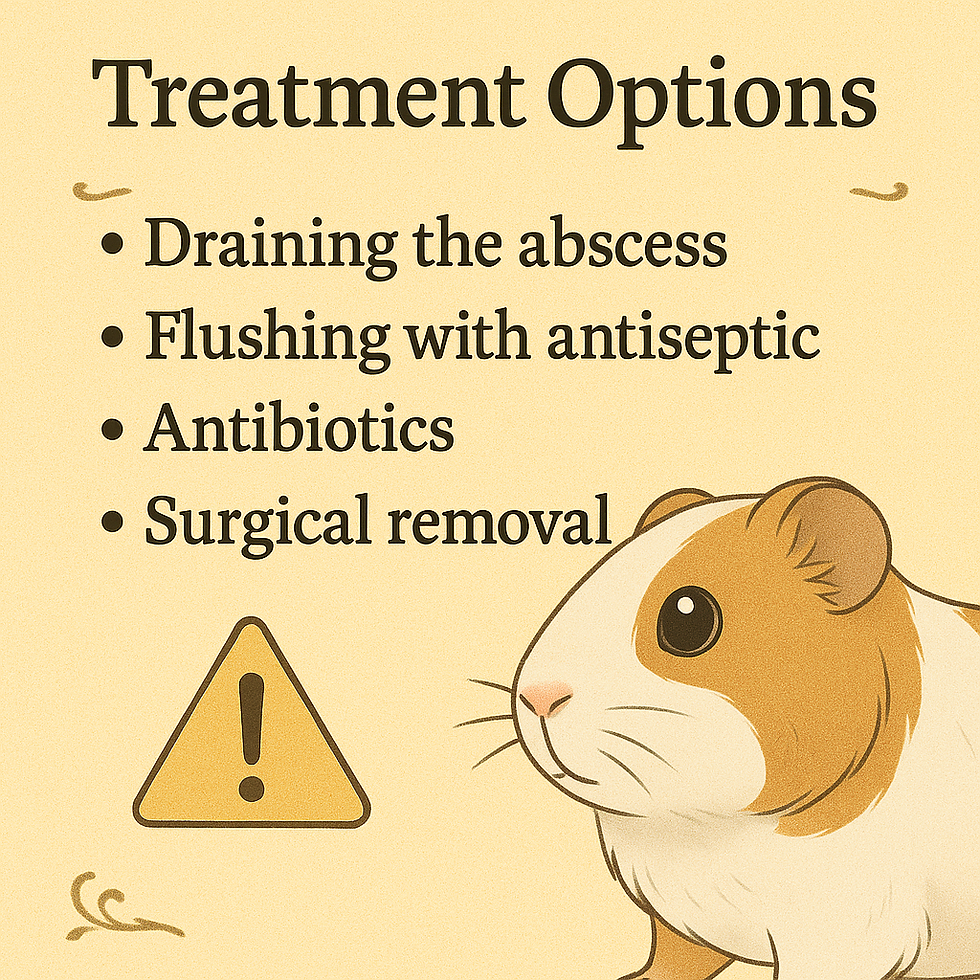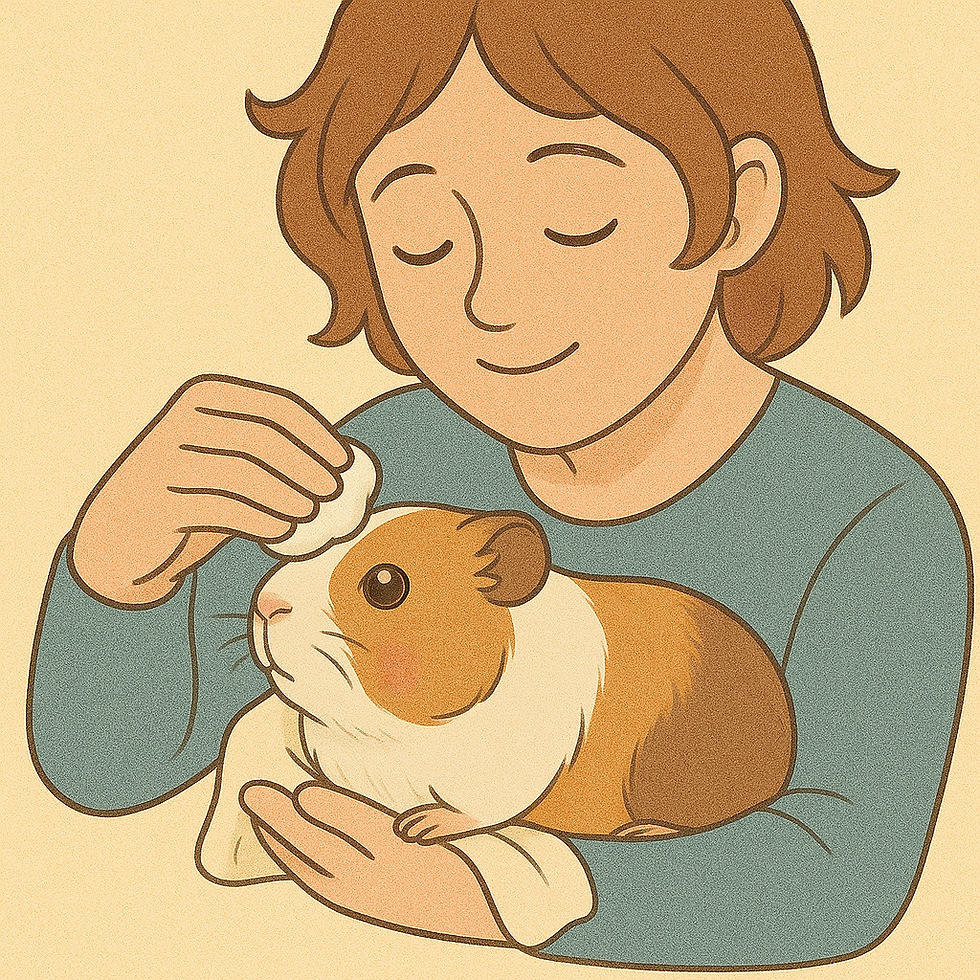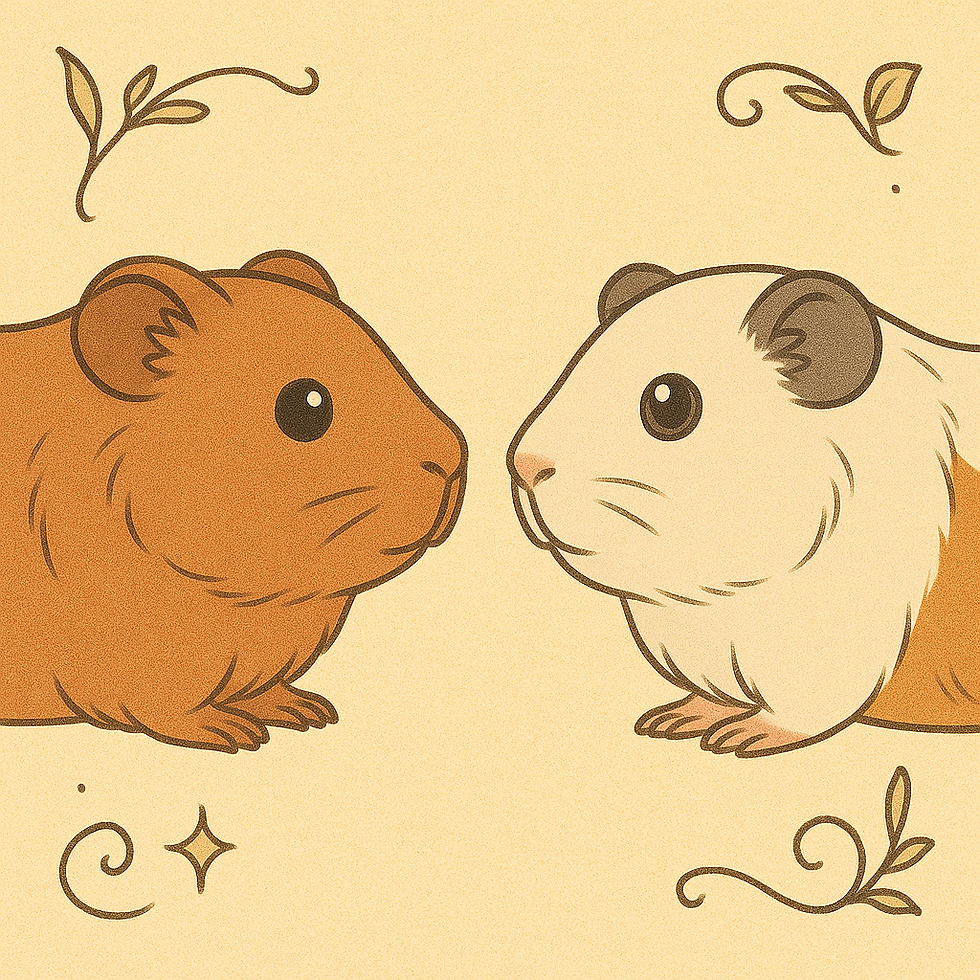“What is a Guinea Pig Abscess?”
- Sarah Robarge

- Aug 30, 2025
- 3 min read

Guinea pigs are wonderful companions, but like all pets, they can develop health problems that require quick attention. One of the more common and concerning issues is an abscess — a localized pocket of pus that develops as a result of infection. Understanding what abscesses are, how they form, and why they need veterinary care is essential for every piggy parent.

What Is an Abscess?
An abscess is essentially the body’s way of fighting infection. When bacteria enter through a wound or problem area (like a dental issue), the immune system walls off the infection, creating a lump filled with pus. In guinea pigs, abscesses frequently form under the skin, especially around the jaw, cheeks, or where a bite or scratch occurred.

Causes of Abscesses
Abscesses can arise from several situations:
Bite wounds from cage mates are a leading cause.
Dental disease, such as overgrown teeth, can create infections near the jaw.
Scratches, cuts, or trauma may allow bacteria in.
Post-surgical infections sometimes lead to abscess formation.

Recognizing an Abscess
Abscesses often feel like firm lumps beneath the skin. Some may look swollen or red, while others remain hidden beneath fur. Guinea pigs with abscesses may also show signs of discomfort, reduced appetite, or weight loss. Because guinea pigs hide illness well, even a small lump should be taken seriously.

Why Abscesses Are Dangerous
Unlike in some animals, guinea pig abscesses rarely drain or heal on their own. Instead, they often become encapsulated and continue to grow. If left untreated, they may rupture, allowing infection to spread internally — a potentially life-threatening situation.

Treatment Options
Treatment always requires a veterinarian. Depending on the case, your vet may:
Surgically drain or remove the abscess.
Prescribe antibiotics to fight infection.
Provide pain relief and aftercare instructions.
Some abscesses need repeated cleaning or even surgery. Each case is different, which is why professional care is non-negotiable.

Supporting Recovery at Home
While you can’t cure an abscess on your own, you can support your guinea pig’s recovery:
Follow your vet’s cleaning or flushing instructions carefully.
Administer all prescribed medications.
Offer comfort, fresh hay, and hydration.
Keep stress levels low and monitor healing daily.

Prevention Tips
Though not all abscesses are preventable, you can reduce risk by:
Trimming nails regularly to avoid scratches.
Removing sharp cage accessories.
Making introductions between guinea pigs should be gradual and supervised.
Scheduling routine dental check-ups.

When to Call the Vet
Contact your exotics vet immediately if you notice a lump, swelling, redness, or pus — or if your guinea pig stops eating. Quick action often makes treatment more effective and less invasive.

Conclusion
Abscesses are a common but serious condition in guinea pigs. With fast veterinary care, most abscesses can be successfully treated. As a piggy parent, staying alert to early signs can make all the difference in keeping your companion happy and healthy.

Caring for guinea pigs takes love, patience, and the right knowledge. Stay connected with The Cavy Whisperer by joining our email list — you’ll get health tips, enrichment ideas, and piggy wisdom straight to your inbox.
👉 Sign up for our newsletter today!
And while you’re here, check out our Guinea Pig Gift Shop — every purchase helps support our mission to create more resources for piggy parents like you. From whimsical mugs to cozy blankets, there’s something for every cavy lover.






Comments